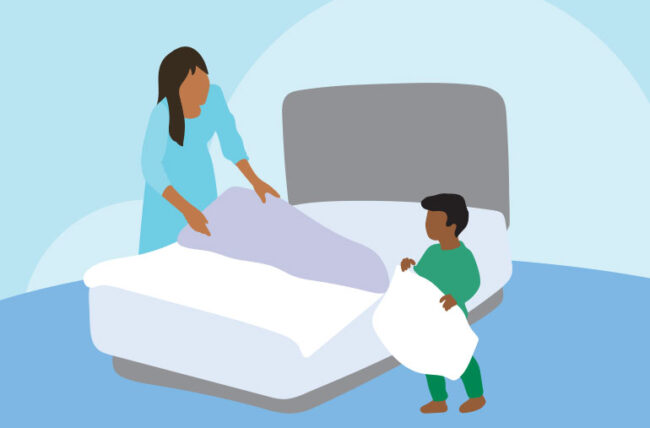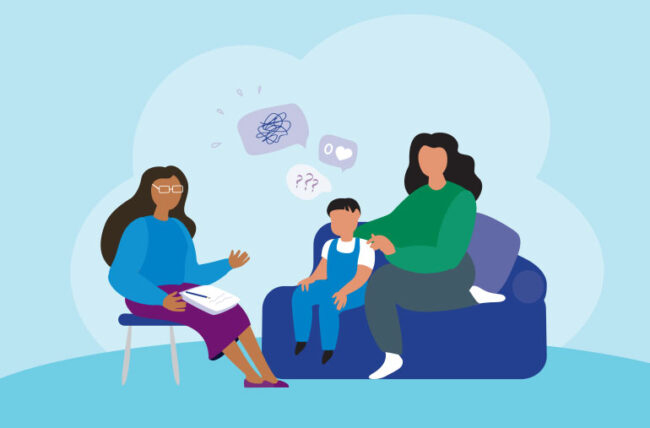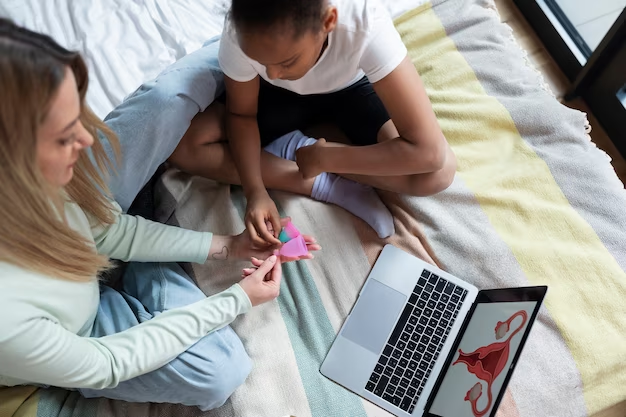Nothing will throw off your routine for bedtime quite like your child’s apparent transformation into a seal pup. You’ll be shivering when you hear your child cough.
Parents and caregivers need not worry! Although it may sound alarming, the croup is usually not serious and will only last a short time. You can also help your child feel better sooner.
We spoke with pediatrician Kimberly Giuliano MD about home remedies for croup to help your child get better and back to sleep.
What is croup, and what causes it?
Croup causes swelling of the upper airways in children. This makes it hard for the little ones to breath.
Croup is more common in the winter and fall months. Croup is most common in children younger than 3 years old and rarely occurs in older kids.
As children grow, their windpipes also do. When older children have an infection of the airway it does not affect their breathing as much.
bacteria can also cause croup.
“Croup is usually a mild cold. “Then, the child will develop a hoarse vocal tone similar to laryngitis,” explains Dr. Giuliano.
What the croup sound is like
Croup is characterized by a barking cough that sounds like a seal. This is usually worse at night. It can sound very high-pitched, which can be frightening for children and their caregivers.
“The typical cough associated with a cold can be either dry and throaty, or deeper and more mucus-like. The cough associated with croup can be very distinct. The cough is different than any other parents may have heard.
When your child breathes in, they may have a wheeze that is harsh, raspy and vibrating. This is called stride,. It may sound like they have something stuck in their throat. You’ll want make sure your child is not choking if you hear them wheeze or whistle high-pitched when they inhale.
Croup can also cause:
- Breathing difficulties.
- They have difficulty bending their neck.
- Fever
- When you feel nervous or restless at night, or if it is difficult to breathe, this can be a sign of a respiratory problem.
How long will it last?
The croup should clear up by itself in about five to six days depending on how severe the infection is. You may want to call your pediatrician if it persists beyond that point.
Children who are sick can spread germs to others. Even though adults and older children won’t get the croup, they can still become sick if your child “shares germs”. It is best to keep your child away from other children for three days following their illness. Croup is easily spread between young children. Keep them at home until the fever has gone down for 24 hours.
Home remedies
Although croup doesn’t usually cause harm, it can make your child uncomfortable. It can be a major problem for your family, especially if it occurs at night.
Dr. Giuliano believes that most children can get over croup on their own. There are some things you can try to make them feel better quickly.
Steam
Steam can help to calm the cough.
Dr. Giuliano believes that breathing in moist air will help children who have difficulty breathing.
Turn the hot water on and let the steam fill the room. Steaming their airways for about 10 minutes can help.
A humidifier can also help to add moisture to the air in your child’s bedroom. This will bring relief.
Cold
Cooling down can also help with croup breathing issues. Imagine the last time you sprained an ankle. Imagine how you would have treated the swelling with an icepack. Cold air can also reduce swelling of your child’s airway.
You can use a variety of methods to soothe a cough. You could go for a walk in the winter or take your child outside to play if it is cold. You could also go on a short trip with your windows partially down.
You can also have your child stand before an open refrigerator door. Just for a few moments. Nobody recommends giving your child frostbite!
Keep your upright
It can be difficult to breathe when you lie down. Hold your child up on your lap, or encourage them to sit up on their own when they are old enough. You can keep your child more inclined to sleep at night by placing an extra pillow or two under the head. Remember that babies younger than 1 year old shouldn’t be using pillows, pillows or anything else in their bed.
Calm down
When you have sick children, we all know that they will cry, whine and yell. But being agitated can make the situation worse. Even when kids are having a great day, crying may cause them to have trouble catching their breath. Crying can make it harder for them to breathe when they have croup.
The American Academy of Pediatrics says that keeping your child as comfortable as possible is one of the best ways to treat croup. Reassurance, comforting hugging and calm activities like reading or solving puzzles are all good ways to help your child.
Avoid cough medicines
You may want to treat your child’s croup quickly, but Dr. Giuliano warns against using over the counter cough and cold medications.
She warns that cold medicines can have significant side effects. Research has shown that cold medicines are not more effective in treating croup, coughs, and other types of colds than placebos.
You can help your child break their fever by using over-the counter fever-reducing medications and other methods.
Call your pediatrician when you need to
The severity of croup may lead to other complications such as respiratory distress or pneumocolitis.
Dr. Giuliano warns that if your child’s breathing problems are getting worse, complications could occur. A child that is struggling to breath should be evaluated immediately.
Another reason to consult a doctor is stridor or wheezing when inhaling. Mild stridor is treated with steroids in order to avoid more serious breathing problems.
Call your pediatrician if you notice that your child’s croup doesn’t improve after a few days, or if it gets worse. Your pediatrician may prescribe medication or breathing treatments in order to get your seal pup, err child back to normal.





















